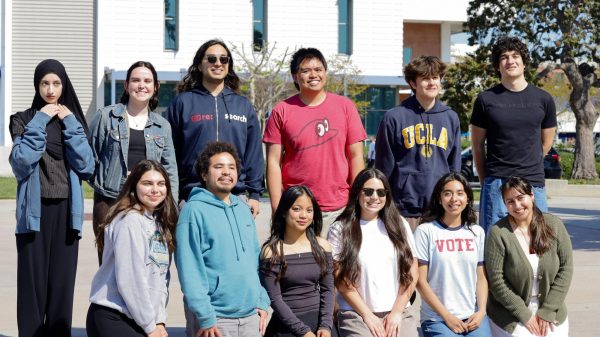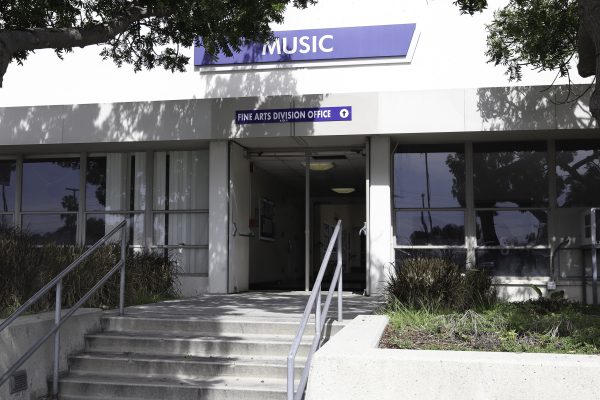El Camino faculty to discuss whether to use artificial intelligence in education
English professor Kevin Degnan announces the roundtable discussion event at the Tuesday, Feb. 21, Academic Senate meeting in Distance Education Room 166 at El Camino College. The event will be held over Zoom on Friday, Feb. 24, to discuss the use of artificial intelligence in the classroom. (Ethan Cohen | The Union)
A roundtable discussion about the use of artificial intelligence in the classroom will be held by members of the Academic Senate’s Academic Integrity Committee on Friday, Feb. 24, at 11 a.m., and is open to El Camino College faculty.
The meeting comes after the emergence of Open AI’s “ChatGPT” software that generates human-like responses through texts causing academic institutions across the country to scramble to accurately understand the uses of the new artificial intelligence tool and the effects that it will have in the field of academics.
“There are other weak AIs that we have been dealing with for years now, but nothing like ChatGPT,” English professor Kevin Degnan said.
Also serving as the Vice President of Institutional Effectiveness for the Academic Senate, Degnan said that the primary goal of the roundtable is to collect information and experiences of other faculty members to better understand the uses of AI in the classroom.
While ChatGPT has its limitations, specifically in the fields of science, technology, engineering and mathematics, advanced AI has puzzled members of the El Camino College faculty on which specific way the institution should approach the new technology.
Some professors, like Joshua Escalante Troesh in the business department, said there are “a couple of technologies out there right now that can check whether a paper has been written by AI.”
In his classroom, Degnan understands that there is potential for the integration of AI but still does not know if he is ready to utilize the technology as a tool for any of his assignments.
“I don’t think there is any sort of a pathway for how to ethically use it [right now],” Degnan said. “I would be open to it if there ends up being a legitimate way to use it as a tool without taking it too far. I mean new tools are great.”
The Union interviewed several students on the subject of ChatGPT, like Adrian Ruiz, 19, who was intrigued by the new capabilities of AI and sees the technology as a “support tool to get the backbone of an essay” and the “start of an idea.”
Similar to existing tools such as spellcheck and grammar, ChatGPT has the same allure to students who view the AI software as a benefit to them inside the classroom.
“I think that when you’re a big institution, like a college, your knee-jerk reaction is always fear, right,” Guided Pathways Coordinator Chris Page said. “At first, it’s like, ‘oh, this is gonna be horrible. This is gonna be a disaster.’ And I think that most of us are a little bit past that point now, where we’re more like ‘okay, this will require adaptation.’”
The upcoming event is only open to the faculty of the college, however, the Academic Integrity Committee will host another event to listen to student perspectives at a later date.









